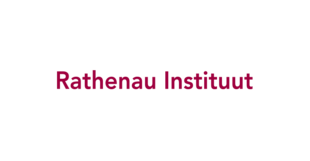Hybrid potato breeding can contribute to environmental sustainability and food security. It also offers opportunities for the global market. Timely steering is essential if these opportunities are to be seized. For example, the Dutch potato sector and authorities must keep innovating and investing in knowledge development.
The Rathenau Institute in the Netherlands did some research. This was into the socio-economic impact of new technologies. This institute developed three scenarios to assess potato cultivation's future. Various parties held joint discussions. These included farmers, breeders, and environmental organizations.
Hybrid potato breeding is a new breeding method developed in the Netherlands. This method allows for quicker adaptations to the varieties. Potato varieties are also available as seeds. These are easier to store and transport than the current potato tubers. This innovation offers opportunities for potato breeding that is more sustainable. It can also lead to higher yields in different climate zones and conditions. This method could be an alternative to the much-talked-about genetic modification of crops.
From the Rathenau Institute's study, it seems new technology needs to be well embedded. Only then can it contribute to socio-economic challenges. The development of new varieties demands an innovative market. The Dutch government can stimulate this through not only regulation and legislation. It can also use gene banks and public knowledge institutes.
The parties involved in the market can also help. They must continue to use a diverse range of genetic materials, varieties, and cultivation methods. The authorities and sector must keep investing in knowledge too. This method must be the base for a new earning model within the potato chain. This must be done for the country to maintain a leading position.
Melanie Peters, the Rathenau Institute's Director, says, "Millions of people across the globe are eating potatoes more often. When it comes to potato crops and, in the issue of sustainability, there is a world to be won. These opportunities can be exploited. But, only if the Dutch government and businesses make timely use of them."
"This is being partly directed by civil society organizations. They are exerting pressure on the sector. It is also being driven by regulations and the authorities' knowledge and innovation policies. It is, therefore, up to several parties to ensure a fruitful future for the potato sectors. It is up to businesses, civil society groups, as well as the government."
For more information: Arno Ottevanger
Arno Ottevanger
Rathenau Instituut
Tel: +31 (0) 703 421 523
Mob: +31 (0) 630 306 088
Email: [email protected]
Website: www.rathenau.nl










